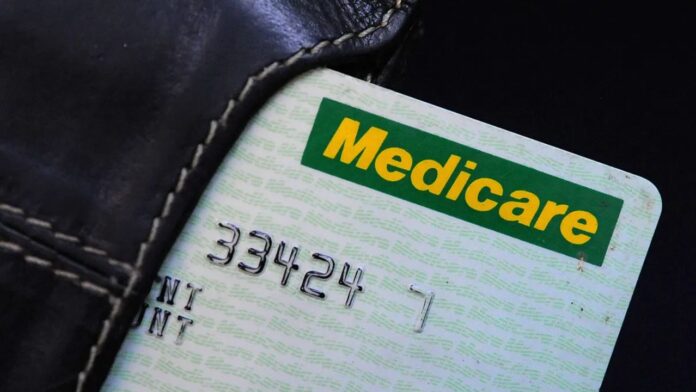Medicare: The recent West Health-Gallon 2024 Survey on Aging in America shows that 73% of individuals under 65 currently worry that Medicare would not be accessible when they most need it, up from 67% in 2022. Of those between the ages of 50 and 64, worry peaked at up 13 percentage points to 74%. Higher percentages of adults express concern about the future of Social Security; 80% of those under 62 and 86% of those between the ages of 40 and 49 worry it will not be around after they are qualified.
The annual Social Security and Medicare Trustees Report just released last month raises grounds for alarm. The programs cannot pay retired Americans full benefits as Medicare’s hospital insurance trust fund is predicted to be spent in 2036 and Social Security’s trust funds are likely to run low in 2035.
Compared with 75% in 2022, 80% of respondents say they are either worried (33%), or extremely worried (47%), hence concerns about Social Security are far more strong and have also grown greatly. Of those between the ages of 50 and 61, the group most likely qualified for Social Security—81% are presently frightened, compared with 72% in 2022, a nine-point increase.
Social Security and Medicare gain years before benefit cuts, still face shortages
Comprising 5,149 adults aged 18 and over residing in all 50 U.S. states and the District of Columbia, the West Health-Gallup 2024 Survey on Aging in America was conducted online and by mail Nov. 13, 2023-Jan. 8, 2024.
With a particular focus on healthcare and safety net programs, the West Health-Gallup 2024 Survey on Aging in America report offers a thorough view of Americans’ evolving views, practices, and trends linked to growing older. Full results from the new study may be viewed here.
Older Americans More In favor of Social Security and Safeguarding Medicare
With 87% of those 65 or over giving Social Security and Medicare “highest priority,” older Americans are more likely than their younger counterparts to believe that preserving the future viability of these programs is crucial. Double the level observed among 18-to 29-year-olds. Most usually, Americans count on these programs being accessible to them when they are qualified to receive them: 65 for Medicare and 62 for Social Security.
Slightly higher than the 83% (below the age of 62) who think the same about Social Security, 87% of persons under 65 believe Medicare will be “extremely important” or “important” to them in their later years. The degree of relevance of these programs increases even more among individuals under the age of 65 (for Medicare) and under the age of 62 (for Social Security: to 94% and 91%, respectively.
Texas SNAP Benefits Payment June 2024: When Will you Receive your Food Stamps Next Month?
Problems Related to Aging Affect Voting Choices
Nearly six in ten Americans say they are “somewhat more likely” (37%) or “much more likely” (20%), to support a candidate for public office who gives issues impacting older Americans high priority. Older folks have more of this feeling; the highest percentage among those 65 and above is 77%.
Most Americans, meanwhile, do not perceive political candidates attending to the needs of elderly citizens. About three-quarters of respondents (73%) say the government now gives these concerns “not too much” (60%), or “not at all” (13%), top priority. Among those 65 years of age and above, this swells to 80%.
Just 15% of adults, in turn, “strongly” or “somewhat” think that the U.S. is ready to care for its aging population, therefore revealing little public trust in the present policies being followed.
Ageing in America: Additional Important Survey Results
The West Health-Gallup 2024 Survey on Aging in America also produces other important results including:
Pessimism About Growing Older Runs Deep
Though Americans are more inclined to feel their present life is better than their parents’ existence at the same age across all spheres of life, pessimism runs strong for the prospects of future generations. When it comes to mental health/happiness, financial stability and stress levels, over half believe future generations will be worse off than under 20% who believe future generations would be better off for each condition.
Ageing Successfully Requires Mostly Affordable Healthcare
- With an estimated 49 million Americans, including 7.5 million aged 65 or older with Medicare, who regard the cost of healthcare as a “major burden,” healthcare and prescription-drug expenditures still substantially weigh on American adults.
- Up notably from 25% in 2022, almost one-third (31%) say they are “concerned,” or “very concerned,” about their ability to pay for prescription medications in the next 12 months. The rise — 11 points, from 20% to 31% — among older Americans aged 65 and above is even more pronounced and now equals the degree of concern among Americans aged 18 to 64.
New Stimulus Check: Pennsylvania Considers New Stimulus Check as State Surplus Grows
- Including 8.1 million aged 65 and older, high expenses delayed an estimated 72.2 million Americans from obtaining treatment for needed care out of past three months. These approximates for prescription drugs especially are 38.7 and 5.8 million, respectively.
Problems in Mental and Behavioral Health Growing Worse and Ignoring Attention
- For Americans—including senior citizens—mental health issues become a major concern. Out of those between the ages of 50 and 64, nearly one-quarter (27%) say their mental health has gotten worse over the past three years, more than the percentage who say it has improved (22%). Similarly, among those 65 years of age or above, more say their mental health has gotten worse (21%), than better (17%).
- Nine in ten Americans (89%), believe mental health to be at least as vital as physical health.




